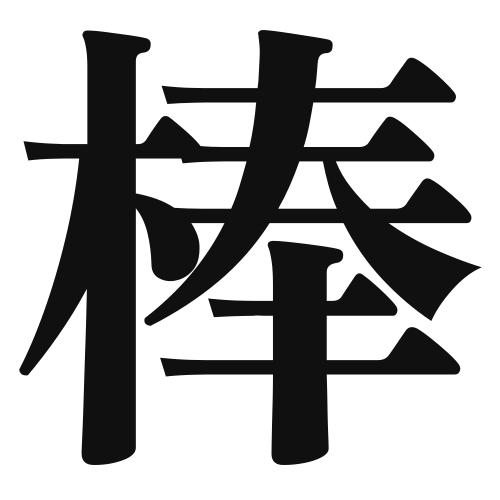1. Overview of Meaning
The kanji “棒” (bō) means “stick” or “rod.” It refers to a long, thin object that is typically straight and can be used for various purposes, such as support, measurement, or as a tool.
2. Formation and Radical
The kanji “棒” is a compound character formed by combining two elements: the radical “木” (tree) and the phonetic component “棒” (bō). The “木” radical suggests a connection to wood, which is often the material used to make sticks or rods.
The radical “木” indicates that the character is related to trees or wooden objects.
3. Examples of Usage
Common words and phrases that include “棒” are:
- 棒球 (bōkyū) – baseball
- 棒読み (bōyomi) – reading in a monotone voice
- 棒立ち (bōdachi) – standing stiffly or frozen in place
Example sentence in daily conversation:
「公園で子供たちが棒を使って遊んでいます。」
(In the park, the children are playing with sticks.)
4. Synonyms and Antonyms
Similar kanji with related meanings include:
- 柱 (hashira) – pillar, which refers to a vertical support structure, often larger and more permanent than a stick.
- 棍 (kon) – staff or club, which is typically thicker and used as a weapon or tool.
Antonyms include:
- 球 (kyū) – sphere, which represents a round object, contrasting with the straight nature of a stick.
5. Cultural and Historical Background
The kanji “棒” has cultural significance in Japan, often associated with traditional games and sports. For example, in the game of “棒倒し” (bōtaoshi), teams compete to knock down the opposing team’s pole.
Proverbs and idiomatic expressions that include “棒” are less common, but the concept of a stick or rod can symbolize support or stability in various contexts.
